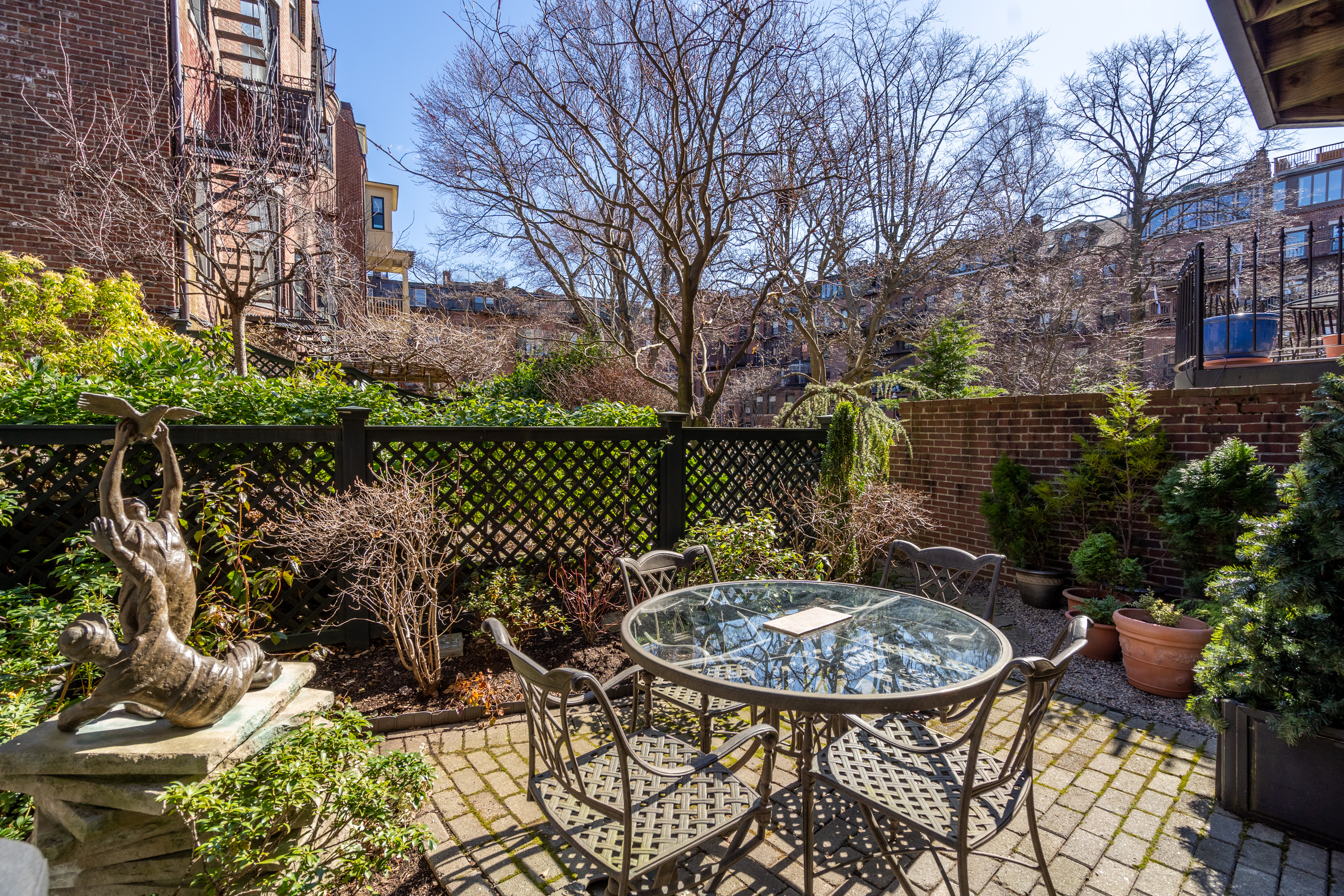Whether a lakefront home is going for $500,000 or $10 million, veteran real estate agent Susan Bradley of Coldwell Banker Residential Brokerage in Laconia, New Hampshire, takes the same approach. “I guide the seller in how to focus on the water, since that is what people are buying: the location,” says Bradley, who specializes in representing homes in New Hampshire’s Lakes region. She recommends an exterior approach that mimics her interior one: don’t depersonalize, but definitely declutter.
Waterfront homeowners often eschew window treatments since the view is paramount. “When buyers enter a lakefront home, they are looking for the view,” she says. And it always helps to do a bit of staging outside as well. “You want to enhance the waterfront and allow a buyer to see how easily they can access it.”
While the state of New Hampshire controls many aspects of the Lake Winnipesaukee waterfront, there are things that homeowners can do. “You can prune vegetation or limb trees to maximize a view – but not cut them all down,” Bradley says. She also recommends that sellers ensure that all areas of their property that abut the lake are neat and tidy. “If you have a beach, rake the sand. If you have a dock, make sure it is in good condition.”
Buyers, of course, often want different things: some want to see the mountains, others are looking for sunsets. Bradley strives to find them that perfect home. “I’ve worked with many clients who initially say they only want afternoon sun and a southwestern exposure, buy ultimately they fall in love with something different. So I try to expose buyers to a lot of waterfront homes with various features.”
She also cautions buyers to ask for permit documentation for exterior components such as docks, and advises both sellers and buyers about which aspects of waterfront properties have greater value. “I will emphasize the value of an existing lawn or sand beach, because not everyone understands they can’t add new lakefront lawns or create a beach where water laps up against the sand,” she says. “There is significant value to those features, as the state will not allow buyers to build new ones; they can only maintain existing ones.”
The same goes for boathouses and docks. “It is virtually impossible to get a permit to build a boathouse on Lake Winnipesaukee at this point,” she says. So for someone with a wooden boat, for example, a home with an existing boathouse would have tremendous value as a structure that could offer full protection from the sun and rain for a vessel.
“If you have a dock, you can get a permit to canopy it seasonally, and if you don’t, the state is more willing to grant permission to a homeowner for a seasonal dock that will be removed over winter,” says Bradley.
Another aspect of her job is to point out geographic advantages for different properties. “Winnipesaukee is a large lake with some deep coves, where the water does not flow as freely,” says Bradley, who herself lives on the lake. This means there could be additional vegetation growth in the water in those areas. “The lake water is incredibly clean overall, but I do impress upon clients the aesthetic value of areas where the water is more free flowing.”
Bradley’s expertise may be specific to the New Hampshire Lakes region, but her advice is universal for waterfront homes: “Sellers should help buyers envision easy and enjoyable access to the water.” She feels a good Realtor should advise about local regulations and point out all added values of each aspect of the waterfront.
After 38 years in the business, Bradley still finds that work very satisfying. “There are challenges, but I love helping people realize their dream. It’s a wonderful profession.”
Sponsored Content | Text by Lisa Cavanaugh




